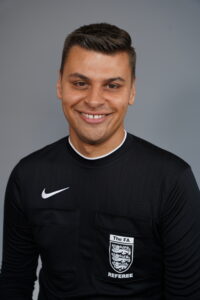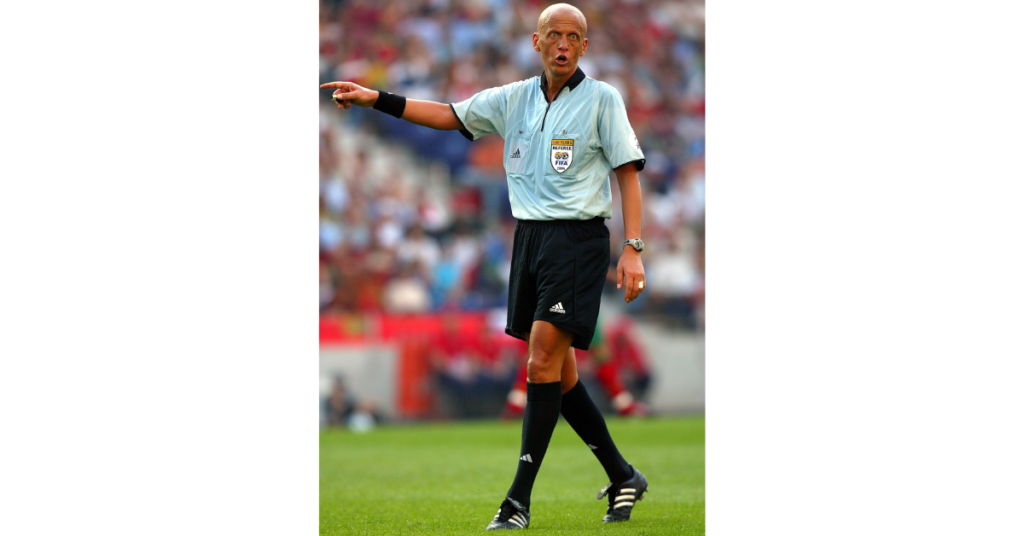Refereeing can be such a relentless, ever-changing, fast-paced and unpredictable environment on the field of play, which can have a huge impact on our performance in a successful or unsuccessful way.
How much of this can we control or influence? What factors can’t we control? How much control should we strive for? Should we let things be as they are?
Firstly, let’s look at the uncontrollable variables, this is where we, as officials, have no control over or cannot influence the outcome in our favour. Such variables are, the weather condition, playing teams, the venue, spectators, how much time left in the game or to some extent our colleagues. The list of things not in our control are endless.
Let’s focus on what we can control, which is ‘US’ more specially our Attention and our Focus. Attentional control relates to how a referee can focus awareness onto the environmental stimuli that are most relevant during the task. The process of attending selectively to the most important cues involve concentration.
Nideffer’s Attentional model is a great start to build an official’s awareness and understanding. Nideffer’s approach to attention, can be broken down into two dimensions.
Firstly, width. There are two options, broad or narrow. Broad takes in a great deal of information from the environment. Narrow is the opposite, one or two stimuli we focus and select. This dimension shows the change in the amount of information to be processed.
Secondly, direction is where the attention is focussed, inwards and onto the psychological state or outwards onto the environment.
These dimensions each occur on overlapping continuums, creating four “quadrants” of attentional focus.
The important piece about this model, you might be thinking what is best? Where do I need to be? At any given point in time there might be places for all of them. So instead of thinking one is right and one is wrong. It’s about becoming self-aware, where do I need to be in this moment. What’s value for me right now, can I select and move through the different quadrants I need to be when I need to be there. So coming back to when we say control the controllable, we can control where we are and recognise, right now I might be broad-external but I need to switch to internal-narrow. Then I can take the time, come back to my breath and be where I need to be. Attention and concentration as a referee must be adjustable, like a zoom lens on a camera.
Maintaining concentration is critical to performing at your best, yet figuring out what to focus on and maintaining the correct attentional focus during performance is not easy. This is where Nideffer’s model can come in handy.
Below are additional exercises that may be helpful in improving one’s ability to concentrate during a fixture.
- Becoming self-aware of the controllable’s vs. uncontrollable’s – make two lists. One list should be the controllable’s, which are those factors officials can do something about. The other list should be the uncontrollable’s, which are the elements of performance referees cannot do anything about.
- Create a “What if” plan, this can help prepare you for any obstacles or challenges you may encounter in the ever-changing, fast-paced, unpredictable environment of the field of play. Address the things you really fear in the game. Just list them all. Then address them one by one, asking yourself, is it controllable or not and if it happens I will….
- Concentration cues, highlight and develop a list of correct cues officials should be focussing on when following and off the ball. Use trigger words or short phrases to reinforce specific concentration cues for a task or skill i.e “drop back” or “run towards the corner flag”.
- Incorporate simulation pressure games or drills to train positive responses to adversity (e.g. Use time pressure, making a decision on a Key Match Incident (KMI) or bad movement and positioning etc.).
Remember referees who can focus on the task at hand and avoid distractions enjoys the greatest possibility of success. So, invest your time and energy into things you can control such as attention. You are never going to be in complete control of everything so why not accept the unpredictability and enjoy what you can control.
At The Third Team I work individually and in collaboration with different professionals where I have developed workshops and 1-2-1 sessions associated with Resilience and Mental Toughness Development to help referees. The workshops and 1-2-1 sessions are interactive, where referees are encouraged to open up and share their experiences to help themselves and each other.
Feel free to contact me if you’d like to know more about my workshops or 1-2-1 sessions and how I could help you or your officials.
Best Wishes,

Nathan Sherratt
Referee Educator & Managing Director of The Third Team

Nathan Sherratt
Nathan Sherratt, Referee Educator, Resilience Trainer and Managing Director of The Third Team. A Mental Toughness Practitioner based in County Durham, North East England.

